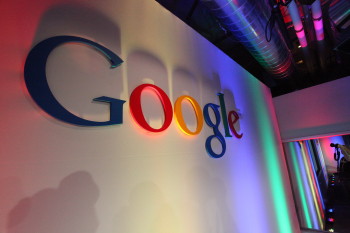
Google is officially charged with antitrust violations in the EU over bundling of apps in Android
Remember back when we told you Google was being investigated by the EU for antitrust concerns? It wouldn’t have been the first time it happened, but this time Google was under scrutiny for their practice of bundling their apps with Android, a requirement of the license OEMs supposedly have to sign to use Android with Google’s services (such as the Google Play Store or Google Search).
Well, that investigation has been elevated to a full-on charge. The EU believes Google is breaching the European Union’s antitrust laws with their practices, which they say include forcing phone makers to bundle apps like Google Chrome with their operating system in order to use Google Search or the Google Play Store.
While details of those OEM contracts still haven’t been made public, Google attempted to combat the objection by suggesting OEMs can use Android without ever having to agree to anything but the terms of use document you read before downloading AOSP code. Amazon does this to great effect, and sure enough that was Google’s prime example.
Google says OEMs only have to agree to make their device in a way that ensures Android apps work on any device to make for a better user experience:
Manufacturers who want to participate in the Android ecosystem commit to test and certify that their devices will support Android apps. Without this system, apps wouldn’t work from one Android device to the next. Imagine how frustrating it would be if an app you downloaded on one Android phone didn’t also work on your replacement Android phone from the same manufacturer.
Then, Google says, an OEM can “choose” to load the Google services and apps:
Any manufacturer can then choose to load the suite of Google apps to their device and freely add other apps as well. For example, phones today come loaded with scores of pre-installed apps (from Microsoft, Facebook, Amazon, Google, mobile carriers, and more).
Google likely isn’t painting the fullest picture they can here, but these OEM agreements are something the European Union is sure to reference when they’re stating their case against the search and mobile giant. There can’t be a coincidence that every major Android phone to launch these days has a Google folder on the home screen, right?
Even if Google is requiring their apps to be bundled on Android devices, OEMs seemingly choose how those apps are presented. They could make their own pre-built apps more prominent than Google’s if they wanted. There’s a Chrome browser installed, but there’s nothing keeping an OEM from putting a huge Opera icon on the home screen by default. And going back to that Google folder thing, some OEMs seemingly have more Google apps than others.
Whether there’s any “choice” at all is what the EU is objectifying, and it’s an important issue that could change the way Android is distributed down the line. It’s important to note that a charge doesn’t necessarily mean Google has already lost, just that they’ll have to go through the legal process of proving their innocence. You can bet we’ll be all over this story as it continues to develop.